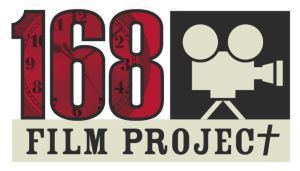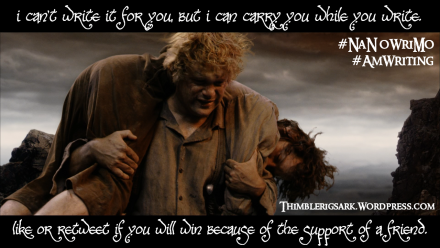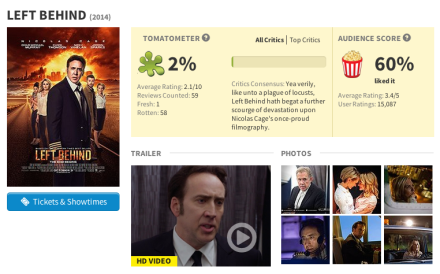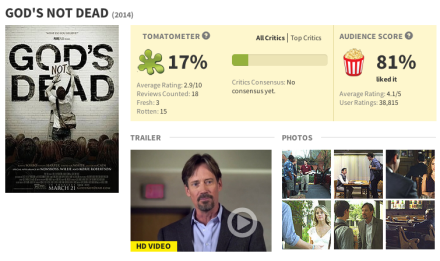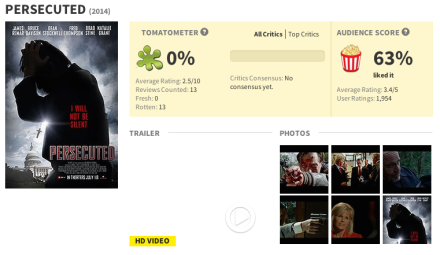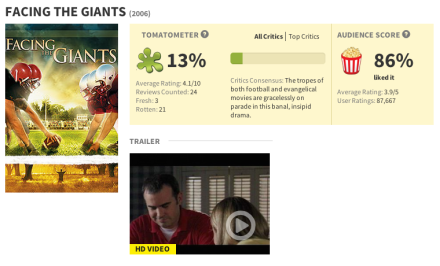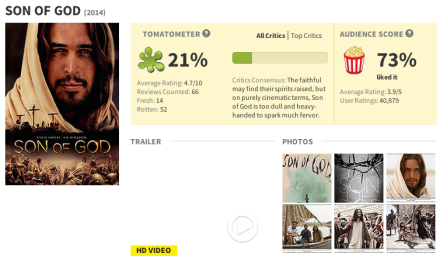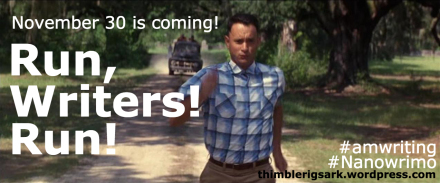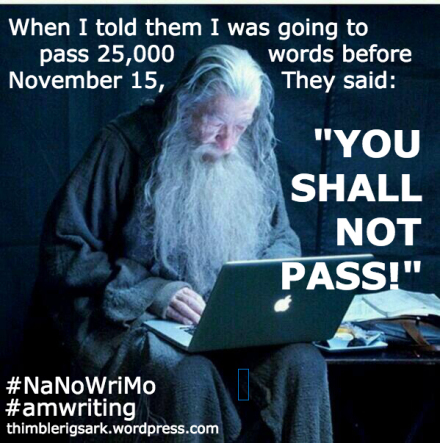Nate Fleming's Blog, page 32
December 4, 2014
3 Reasons Why a Christian Film Industry is a Really, Really Bad Idea
“Too little, too late.”
That’s the phrase that kept coming to mind as I started to write a blog post where I, as a Christian, was going to argue against the building of a Christian film industry.
After all, Christians have been trying – on some level – to create a Christian film industry since movies began, and some would argue even earlier. There were the Billy Graham films of the 1950’s, the apocalyptic Thief in the Night movies of the 1970’s, and a smattering of attempts by different Christian filmmakers during the 1980’s and 1990’s, but these movies barely registered on the radar of people outside of the church. As far as Hollywood was concerned, Christian movies were provincial affairs, unworthy of notice.
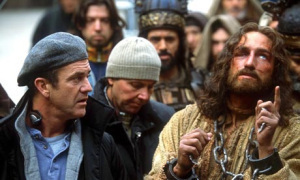 Then in 2004, Mel Gibson shocked everyone to attention with his blood-soaked account of the last twelve hours of the life of Jesus – The Passion of the Christ, a film that cost 30 million to make and earned over 600 million.
Then in 2004, Mel Gibson shocked everyone to attention with his blood-soaked account of the last twelve hours of the life of Jesus – The Passion of the Christ, a film that cost 30 million to make and earned over 600 million.
Hollywood finally stood up and took notice.
It was as if Gibson, by successfully tapping into the largely untapped market of the “faith based audience”, had singlehandedly uncovered the fabled lost golden city of El Dorado, and the L.A. conquistadors immediately set about strategizing how to best invade and conquer this shining city on a hill.
The Armani-suited conquistadors didn’t waste time, but began attaching themselves to little-known Christian filmmakers who seemed to appeal to the Christian masses, eventually inking deals with the Kendrick brothers (Facing the Giants, Fireproof), Pureflix Entertainment (God’s Not Dead), Cloud Ten Pictures (Left Behind), and many others – helping provide the finances and distribution channels that would permit these filmmakers and film companies to continue making and marketing their products for the Christian audience.
And in the past couple of years we’ve seen several well-known individuals from outside the filmmaking industry also try to tap into the Χριστιανός zeitgeist – Rick Santorum, Glenn Beck, Willie Robertson, to name a few – all doing their part to try and build up a Christian (or politically conservative) filmmaking industry in their own image, or at least one that lines up with their own personal theological interpretation of the faith or political ideology.
And now, here we have this little blog, a small voice crying in the wilderness, making the argument that creating a Christian film industry is absolutely the last thing that we Christians should be trying to do.
THREE ARGUMENTS WHY A CHRISTIAN FILM INDUSTRY IS A REALLY, REALLY BAD IDEA
1. The audience – we want them to hang about, don’t we?
A Christian film industry would only succeed in driving the unchurched audience even farther away than they already are.
Hollywood stood up and took notice with Gibson’s “little indie film that could” because of the massive Christian support. This huge group of people supported The Passion in a way they hadn’t supported a film before. According to a Barna survey, roughly half of the movie’s audience identified as born again Christian, and the film was widely backed by Christian leaders of all denominational backgrounds because of the heavy lifting done by Mel Gibson to get them on board.
But the interesting thing about The Passion was how it was also seen by people who didn’t consider themselves religious. That same Barna survey mentioned that one out of three Americans claimed to have seen the movie, a pretty stunning feat for any film. Mainstream, indie, secular, Christian, whatever… any filmmaker would dream of numbers like that.
Isn’t that something? The Passion of the Christ had an incredible return on its investment (both financially and spiritually), and while it was marketed to Christians, it was a movie everyone wanted to see, regardless of their faith. In fact, I first saw The Passion in a packed movie theater in Almaty, Kazakhstan back in 2004, surrounded by people who had little to no idea who Jesus was, and they were blown away by the film.
But the faith-based movers and shakers seem to have forgotten the wide appeal of Gibson’s film. Christian films continue to be made squarely for Christian audiences – and if some non-Christians happen to get dragged to the film by their Christian friends, then good on them, but the movies aren’t made for them.
Here’s the rub: if the movies were playing in churches, I wouldn’t have a problem!
But the movies aren’t playing in churches. They’re playing in cinemas.
At the malls and multiplexes.
Where people who don’t go to church like to go on a Friday night.
That’s the problem.
 What do these people see on their Friday night out? They see Left Behind (RT score of 2) playing beside Fury (RT 78) and Birdman (RT 94).
What do these people see on their Friday night out? They see Left Behind (RT score of 2) playing beside Fury (RT 78) and Birdman (RT 94). They see Kirk Cameron’s Saving Christmas (RT 0) playing beside Christopher Nolan’s Interstellar (RT 73) and Disney’s Big Hero 6 (RT 89).
If you aren’t seriously bothered by those comparisons, then I really wonder if you’re paying attention.
And with every subpar film effort made to expressly please the Christian masses, the respect of the non-Christian for our art and – yes – for our faith – goes down. Just look here, here, here and here. Those are films made in our name, folks, and you can almost hear the sounds of doors closing as the unchurched audience sees what is done in our name, and checks us off their list of groups to be taken seriously.
The creation of a Christian film industry will not improve this, and conversely, I contend that it will entrench us deeper into our misguided acceptance of poorly written, preachy, unambiguous films with underdeveloped low-dimensional characters, and cartoonish, moustache-twirling non-Christian antagonists.
2. People don’t like message movies. Seriously.
A Christian film industry would excel at creating movies that are heavy on message and light on story and character development.
After all, that is what we’ve been creating, almost exclusively, since the dawn of so-called Christian filmmaking.
But here’s the crazy thing: people don’t like message movies, especially poorly made ones.
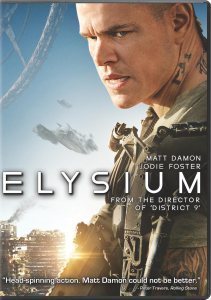 Remember how angry Christians got when the rumors hit that Darren Aronofsky’s Noah would be a pro-environmentalist screed? Why? Because Christians disliked the message. Neil Blomkcampf and Matt Damon’s Elysium was roundly blasted by conservatives. Why? Because they disliked the film’s liberal message.
Remember how angry Christians got when the rumors hit that Darren Aronofsky’s Noah would be a pro-environmentalist screed? Why? Because Christians disliked the message. Neil Blomkcampf and Matt Damon’s Elysium was roundly blasted by conservatives. Why? Because they disliked the film’s liberal message.
The message of a movie should be like the caboose of a train – carried along by the other elements of the film – story, dialogue, character, cinematography, acting – and not the other way around. The message of a well-made film will hit you hours later when you’re lying in your bed, while the message of a poorly-made message-heavy film will steamroll you over while you’re sitting in the cinema.
Granted, if you like the message that the message movie is presenting, you might fool yourself into thinking that you like the movie, but odds are you really only like the message and you’re tolerating the movie. Again, if we are producing these films only for ourselves, and we’re showing them in churches on Sunday nights or at youth retreats, then we should feel free to knock ourselves out and preach away.
However, we aren’t making our Christian message movies in a vacuum. The world is watching, and they are not getting our message because they don’t like our message-heavy movies.
3. Further self-isolation is a big, short-sighted mistake.
A Christian film industry would drive us to close our ranks even more than we already have.
After all, the hard truth is that people who aren’t Christians already rarely read our books. People who aren’t Christians already have little to no interest in listening to our music. They typically don’t visit our blogs, subscribe to our magazines, attend our universities, shop in our gift shops, tune into our television programming, or take advice from our talk shows. They’re rarely interested in attending our churches, our Bible studies, our home groups, our prayer meetings, or our revivals.
We’ve done quite a good job building a subculture for ourselves, isolating ourselves from the influences of the world, but in the process we’re also isolating our influence from the world!
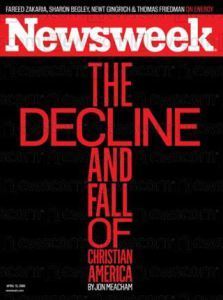 And now we find ourselves stuck in the gravitational pull of a cultural black hole. Religion has always been a huge factor in public discourse in the United States, but since a height of relevance in the 1950’s, Christian cultural influence has been in a steady decline. In another study, the folks at Barna have shown that this decline will continue so that, unless something changes, by the time my one year old is college-aged, he will be in the definite minority. I should say that he will be in the minority if he is following Christ – and it is my daily prayer that he will be. But my son will need to know how to live and work in a post-Christian world.
And now we find ourselves stuck in the gravitational pull of a cultural black hole. Religion has always been a huge factor in public discourse in the United States, but since a height of relevance in the 1950’s, Christian cultural influence has been in a steady decline. In another study, the folks at Barna have shown that this decline will continue so that, unless something changes, by the time my one year old is college-aged, he will be in the definite minority. I should say that he will be in the minority if he is following Christ – and it is my daily prayer that he will be. But my son will need to know how to live and work in a post-Christian world.
And that post-Christian world that is coming will have very little interest in supporting or encouraging a Christian film industry.
THE ALTERNATIVE TO A CHRISTIAN FILM INDUSTRY
Believe it or not, I’m not saying that we should never make films for Christian audiences. We should! They should be fantastic films, just like films made for any subculture can be fantastic! But that should not be the focus of our efforts.
Rather, we should focus on those Christians trying to make it in Hollywood right now – writers, directors, cinematographers, costume designers, CGI gurus, etc – who are currently studying and working in the Hollywood system, who need to be built up and encouraged by the church while the church still has the resources and relevance to be able to support them! Rather than insisting that they produce middling message-heavy stories for Christian audiences, we should be encouraging them to learn how to tell their stories and live their lives within the system that will be there in the future.
We should be building these believing artists up so that they can have an impact on the lives of the unchurched writers, directors, cinematographers, costume designers, and CGI gurus with whom they work.
We should be helping them to make movies whose posters would be proudly displayed on any mall cinema or multiplex.
We should be helping them get the training and experience and connections that they can use to make films that would have big premieres on red carpets with paparazzi and gowns and tuxedos and limousines.
We should be providing them with the proper tools and support so that the movies they make can be well-made enough to be nominated for Critic’s awards and People’s Choice Awards and Golden Globes and Oscars.
Instead of putting all our money and resources into creating movies that we can enjoy in our isolation, we should be investing in our filmmakers who are out on the mission field of Hollywood, helping them to make movies that can take the cultural landscape by storm, that can hit the widest of audiences, and trusting God to use those efforts to reach the unchurched audience how HE would reach them.
After all, we are called to live with that unchurched audience, not in closed ranks, regardless of how much influence we have. We aren’t to be conformed by the world (Romans 12:2), we shouldn’t be of the world (John 15:19), but we are to be salt and light in the dark world (Matthew 5:13-16) and bearers of a great light to the people who walk in darkness (Isaiah 9:2).
Maybe, just maybe, in our generation or the next – that great light will be seen flickering with 70MM projection on an Imax screen, to thunderous applause.
—
Below are a few good places to start if you want to find some Christians to support in Hollywood. Just click on the logo to go to the organization’s website:

November 30, 2014
Thimblerig’s Interview ��� Michael B. Allen & Will Bakke, makers of “Believe Me”
The��hands-down surprise film of the year for me has��been Believe Me, an��indie film made by some upstart Texans from a production company��with the anarchistically-sounding name of Riot Studios. ��I’m not easily surprised by films these days, especially films made by Christians, but Believe Me caught me off guard from the first moment I heard about it, and kept me off guard until I was watching the credits roll.
 The first big surprise was when I saw that this film, apparently being made by a cadre of unapologetic Christian filmmakers, was going to feature Nic Offerman, he of the impressive moustache, a.k.a. Ron Swanson from NBC’s��Parks and Recreation. ��Nic Offerman might just have been the very last person I would have ever expected to see involved in a film made by believers.
The first big surprise was when I saw that this film, apparently being made by a cadre of unapologetic Christian filmmakers, was going to feature Nic Offerman, he of the impressive moustache, a.k.a. Ron Swanson from NBC’s��Parks and Recreation. ��Nic Offerman might just have been the very last person I would have ever expected to see involved in a film made by believers.
But somehow, the boys at Riot Studios got him.
The second big surprise came when I went to the film’s website, and found out about their��brilliant (yet bizarre) grass roots marketing campaign, wherein they paid people to utilize their social media platforms on behalf of the film. ��The idea was that if you shared their link on Twitter, Facebook, Instagram, whatever – and people clicked that link to go see more about the film, then you earned money. ��It wasn’t a lot of money, but it was still a creative way to encourage people to share the info.
And then, in another unorthodox move, the film was released on the same day��in theaters and as a digital download, which meant that I could actually watch and review the film on opening night – pretty cool for a film reviewer living in China!
But the biggest surprise came when I watched the film, and found it to be refreshingly well-made, the kind of movie that I would show to any of my friends – Christians or not. ��In my opinion, the movie��successfully did many of the things that I believe Christian films need to do to actually be taken seriously as an art form. ��Click here to��read my review��and see more of my thoughts on the movie itself.
In other words, I turned off the movie excited with the realization that I had found some filmmakers who spoke my language.
And so, as the second in my Thimblerig’s Interview series, I’m pleased and honored to have interviewed Michael B. Allen and Will Bakke, two of the three founders of Riot Studios, and the brains behind Believe Me.
In this interview, I find out some of what brought these filmmakers to this point in their careers, what sort of vision they have for filmmaking, and just how they managed to score Nic Offerman to be in their movie.
Please Introduce yourself���
Michael B. Allen – writer/co-producer of Believe Me
Will Bakke – writer/director of Believe Me
Alex Carroll didn���t have the chance to participate in the interview, but he is the other partner and co-founder or Riot Studios and the Producer of Believe Me.
How did you get involved in filmmaking?
 Michael: Will Bakke and I worked on the documentary, One Nation Under God. Then, Alex Carroll came on board for our second doc, Beware of Christians. After that, we officially formed our film company, Riot Studios, together with the intention of making feature films, the first of which is Believe Me.
Michael: Will Bakke and I worked on the documentary, One Nation Under God. Then, Alex Carroll came on board for our second doc, Beware of Christians. After that, we officially formed our film company, Riot Studios, together with the intention of making feature films, the first of which is Believe Me.
Who have been some of your most profound creative influences as an artist(s)?
Michael: In film, I love the films from Paul Thomas Anderson, Stanley Kubrick, the Coen Brothers. The Beatles, Bob Dylan, Radiohead, Neutral Milk Hotel, Arcade Fire, Belle & Sebastian have had huge influences on me that cross over beyond music. The design work and approaches of Saul Bass and Paul Rand. Probably above all, however is ole Leo DaVinci. I really identify with and strive for the ideal of the renaissance man, or the artist-engineer.
Will: In film, I���m a big fan of Mike Nichols (The Graduate), Gus Van Sant (Elephant, Good Will Hunting), and David Fincher (Fight Club, Social Network). Musically I love Broken Social Scene, Third Eye Blind, Cold War Kids, and The Black Keys. I am a big fan of ���concept art��� so I love a lot of Banksy���s work as well I follow Abduzeedo.com��for different graphic designers.
Please explain your thoughts on the state of filmmaking in the Christian community.
Will: The state of filmmaking within the Christian community is pretty narrow. For the longest time, the only ���christian films��� being made were for a very specific, usually conservative, older generation. Now, with Hollywood trying to get a piece of the profits, doors are beginning to be opened for Christians who want to present films in an alternative style.
Please give a synopsis of your film, Believe Me, and tell us a bit of the history of the film.
Will: Believe Me is the story of four college seniors that start a fake Christian charity in order to embezzle money for their college 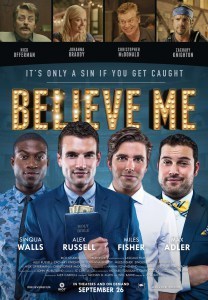 tuitions. The film was meant to challenge the power of platforms and investigate whether truth was relative or not. The filmmakers found a lot of inspiration for the film after touring their previous movie Beware of Christians around the country.
tuitions. The film was meant to challenge the power of platforms and investigate whether truth was relative or not. The filmmakers found a lot of inspiration for the film after touring their previous movie Beware of Christians around the country.
What were some of the biggest challenges you faced in developing the project?
Will: The biggest challenges came with bucking the system and trying not to make a ���message movie���. We feel that so often Christian films put the message or the agenda ahead of its story and that can only diminish it as a whole. If your characters are making decisions based out of the writer���s agenda to preach or be saved, you may be missing out on telling a more compelling and authentic story.
Believe Me is unusual for a film made by Christian artists, as it is a comedy that doesn���t pull many punches.�� How would you advise Christian artists as they think about going outside the lines of typical so-called faith-based films? ��
Michael: Artistically, my only advice would be to follow your personal convictions without the pressure of conforming to the dogma surrounding ���faith-based��� art. At its best, art should challenge its audience, and it���s impossible to challenge someone when you���re only worried about playing it safe.
Along those same lines, is it possible to make a God-honoring film if the creative choices you make earn you an R rating?
Michael: I think that���s up to the filmmakers and the individual members of the audience. If a filmmaker can create something, and a member of an audience watch something, in clear conscience that challenges them or her to love, honor, or enjoy God more, it shouldn���t matter which label the MPAA applies. So many Bible stories, if told through the medium of film, would be rated R, but it doesn���t diminish their ability to draw a spirit of worship from the reader.
What general advice would you impart to emerging filmmakers, especially those who are approaching filmmaking as a calling or a ministry?
Michael: Do the best work that you can do. Don���t feel a pressure or guilt if everything you make is not an explicit sermon. For most, that���s not the point of watching or making movies. If you want to preach sermons, consider a career as a pastor or consider street evangelism in your spare time. If you want to be a filmmaker, make really good films. Whether or not they convert anyone to your religion, they will be a blessing to culture, the same way an architect doesn���t have to build in subliminal Christian messaging to bless the world in his vocation by designing beautiful, functional buildings.
Regarding Riot Studios, can you tell us a bit about this organization, and what sorts of projects are coming down the pipeline?
Will: Riot Studios was formed by Will Bakke, Michael Allen, and Alex Carroll who all produced the documentary Beware of Christians together. We tell stories that compel viewers to challenge their beliefs, weigh the alternatives, and laugh while doing so. We make transparent and thoughtful art through film. We have several projects in the pipeline but right now our biggest focus is on Believe Me. Stay tuned for big things.
Finally, and the question I’ve really been wanting to ask:�� How did you score Nick Offerman for your film?�� That was a huge coup for a faith-based film, and worked out a whole lot better than the other Nic in Left Behind.
Will: Ha. Yeah we we���re absolutely psyched to get a guy like Nick Offerman in our film. It���s interesting because Nick is an outspoken atheist so we were curious ourselves as to why he would want to be a part of something like this. From what we know he really connected with the script and wanted to be a part of a story that felt authentic.
—
A big thank you to Michael and Will for taking the time to answer my questions, and for sharing a bit about their vision for filmmaking as people of faith.
Find out more information about Riot Studios: www.riotstudios.com
Will Bakke on Twitter:��@iamwillbakke
Michael B. Allen on Twitter:��@iamMichaelAllen
Believe Me on Facebook and Twitter: ��@BelieveMeFilm����/BelieveMeFilm
Stay tuned to the Thimblerig’s Ark��blog for more interviews with artists doing interesting non-conformist work in the name of Christ, and come join the��Sacred Arts Revolution conversation over at Facebook!

Thimblerig’s Interview • Michael B. Allen & Will Bakke, makers of “Believe Me”
The hands-down surprise film of the year for me has been Believe Me, an indie film made by some upstart Texans from a production company with the anarchistically-sounding name of Riot Studios. I’m not easily surprised by films these days, especially films made by Christians, but Believe Me caught me off guard from the first moment I heard about it, and kept me off guard until I was watching the credits roll.
 The first big surprise was when I saw that this film, apparently being made by a cadre of unapologetic Christian filmmakers, was going to feature Nic Offerman, he of the impressive moustache, a.k.a. Ron Swanson from NBC’s Parks and Recreation. Nic Offerman might just have been the very last person I would have ever expected to see involved in a film made by believers.
The first big surprise was when I saw that this film, apparently being made by a cadre of unapologetic Christian filmmakers, was going to feature Nic Offerman, he of the impressive moustache, a.k.a. Ron Swanson from NBC’s Parks and Recreation. Nic Offerman might just have been the very last person I would have ever expected to see involved in a film made by believers.
But somehow, the boys at Riot Studios got him.
The second big surprise came when I went to the film’s website, and found out about their brilliant (yet bizarre) grass roots marketing campaign, wherein they paid people to utilize their social media platforms on behalf of the film. The idea was that if you shared their link on Twitter, Facebook, Instagram, whatever – and people clicked that link to go see more about the film, then you earned money. It wasn’t a lot of money, but it was still a creative way to encourage people to share the info.
And then, in another unorthodox move, the film was released on the same day in theaters and as a digital download, which meant that I could actually watch and review the film on opening night – pretty cool for a film reviewer living in China!
But the biggest surprise came when I watched the film, and found it to be refreshingly well-made, the kind of movie that I would show to any of my friends – Christians or not. In my opinion, the movie successfully did many of the things that I believe Christian films need to do to actually be taken seriously as an art form. Click here to read my review and see more of my thoughts on the movie itself.
In other words, I turned off the movie excited with the realization that I had found some filmmakers who spoke my language.
And so, as the second in my Thimblerig’s Interview series, I’m pleased and honored to have interviewed Michael B. Allen and Will Bakke, two of the three founders of Riot Studios, and the brains behind Believe Me.
In this interview, I find out some of what brought these filmmakers to this point in their careers, what sort of vision they have for filmmaking, and just how they managed to score Nic Offerman to be in their movie.
Please Introduce yourself…
Michael B. Allen – writer/co-producer of Believe Me
Will Bakke – writer/director of Believe Me
Alex Carroll didn’t have the chance to participate in the interview, but he is the other partner and co-founder or Riot Studios and the Producer of Believe Me.
How did you get involved in filmmaking?
 Michael: Will Bakke and I worked on the documentary, One Nation Under God. Then, Alex Carroll came on board for our second doc, Beware of Christians. After that, we officially formed our film company, Riot Studios, together with the intention of making feature films, the first of which is Believe Me.
Michael: Will Bakke and I worked on the documentary, One Nation Under God. Then, Alex Carroll came on board for our second doc, Beware of Christians. After that, we officially formed our film company, Riot Studios, together with the intention of making feature films, the first of which is Believe Me.
Who have been some of your most profound creative influences as an artist(s)?
Michael: In film, I love the films from Paul Thomas Anderson, Stanley Kubrick, the Coen Brothers. The Beatles, Bob Dylan, Radiohead, Neutral Milk Hotel, Arcade Fire, Belle & Sebastian have had huge influences on me that cross over beyond music. The design work and approaches of Saul Bass and Paul Rand. Probably above all, however is ole Leo DaVinci. I really identify with and strive for the ideal of the renaissance man, or the artist-engineer.
Will: In film, I’m a big fan of Mike Nichols (The Graduate), Gus Van Sant (Elephant, Good Will Hunting), and David Fincher (Fight Club, Social Network). Musically I love Broken Social Scene, Third Eye Blind, Cold War Kids, and The Black Keys. I am a big fan of “concept art” so I love a lot of Banksy’s work as well I follow Abduzeedo.com for different graphic designers.
Please explain your thoughts on the state of filmmaking in the Christian community.
Will: The state of filmmaking within the Christian community is pretty narrow. For the longest time, the only “christian films” being made were for a very specific, usually conservative, older generation. Now, with Hollywood trying to get a piece of the profits, doors are beginning to be opened for Christians who want to present films in an alternative style.
Please give a synopsis of your film, Believe Me, and tell us a bit of the history of the film.
Will: Believe Me is the story of four college seniors that start a fake Christian charity in order to embezzle money for their college 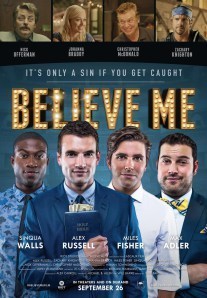 tuitions. The film was meant to challenge the power of platforms and investigate whether truth was relative or not. The filmmakers found a lot of inspiration for the film after touring their previous movie Beware of Christians around the country.
tuitions. The film was meant to challenge the power of platforms and investigate whether truth was relative or not. The filmmakers found a lot of inspiration for the film after touring their previous movie Beware of Christians around the country.
What were some of the biggest challenges you faced in developing the project?
Will: The biggest challenges came with bucking the system and trying not to make a “message movie”. We feel that so often Christian films put the message or the agenda ahead of its story and that can only diminish it as a whole. If your characters are making decisions based out of the writer’s agenda to preach or be saved, you may be missing out on telling a more compelling and authentic story.
Believe Me is unusual for a film made by Christian artists, as it is a comedy that doesn’t pull many punches. How would you advise Christian artists as they think about going outside the lines of typical so-called faith-based films?
Michael: Artistically, my only advice would be to follow your personal convictions without the pressure of conforming to the dogma surrounding “faith-based” art. At its best, art should challenge its audience, and it’s impossible to challenge someone when you’re only worried about playing it safe.
Along those same lines, is it possible to make a God-honoring film if the creative choices you make earn you an R rating?
Michael: I think that’s up to the filmmakers and the individual members of the audience. If a filmmaker can create something, and a member of an audience watch something, in clear conscience that challenges them or her to love, honor, or enjoy God more, it shouldn’t matter which label the MPAA applies. So many Bible stories, if told through the medium of film, would be rated R, but it doesn’t diminish their ability to draw a spirit of worship from the reader.
What general advice would you impart to emerging filmmakers, especially those who are approaching filmmaking as a calling or a ministry?
Michael: Do the best work that you can do. Don’t feel a pressure or guilt if everything you make is not an explicit sermon. For most, that’s not the point of watching or making movies. If you want to preach sermons, consider a career as a pastor or consider street evangelism in your spare time. If you want to be a filmmaker, make really good films. Whether or not they convert anyone to your religion, they will be a blessing to culture, the same way an architect doesn’t have to build in subliminal Christian messaging to bless the world in his vocation by designing beautiful, functional buildings.
Regarding Riot Studios, can you tell us a bit about this organization, and what sorts of projects are coming down the pipeline?
Will: Riot Studios was formed by Will Bakke, Michael Allen, and Alex Carroll who all produced the documentary Beware of Christians together. We tell stories that compel viewers to challenge their beliefs, weigh the alternatives, and laugh while doing so. We make transparent and thoughtful art through film. We have several projects in the pipeline but right now our biggest focus is on Believe Me. Stay tuned for big things.
Finally, and the question I’ve really been wanting to ask: How did you score Nick Offerman for your film? That was a huge coup for a faith-based film, and worked out a whole lot better than the other Nic in Left Behind.
Will: Ha. Yeah we we’re absolutely psyched to get a guy like Nick Offerman in our film. It’s interesting because Nick is an outspoken atheist so we were curious ourselves as to why he would want to be a part of something like this. From what we know he really connected with the script and wanted to be a part of a story that felt authentic.
—
A big thank you to Michael and Will for taking the time to answer my questions, and for sharing a bit about their vision for filmmaking as people of faith.
Find out more information about Riot Studios: www.riotstudios.com
Will Bakke on Twitter: @iamwillbakke
Michael B. Allen on Twitter: @iamMichaelAllen
Believe Me on Facebook and Twitter: @BelieveMeFilm /BelieveMeFilm
Stay tuned to the Thimblerig’s Ark blog for more interviews with artists doing interesting non-conformist work in the name of Christ, and come join the Sacred Arts Revolution conversation over at Facebook!

November 28, 2014
Nanowrimo? ’nuff said.
November 26, 2014
Thimblerig’s Three Interesting Things of the Day • November 27, 2014
1. NaNoWriMo’s End
 The end of November is here, which means that NaNoWriMo’s end is in sight. For me, working on the second book in my Thimblerig’s Ark series, this has been one of my most positive NaNoWriMo experiences. I’m hoping to actually win early, which I’ve never done before! Heck, I’ve only ever even won NaNoWriMo once, so this is doubly a good year for me.
The end of November is here, which means that NaNoWriMo’s end is in sight. For me, working on the second book in my Thimblerig’s Ark series, this has been one of my most positive NaNoWriMo experiences. I’m hoping to actually win early, which I’ve never done before! Heck, I’ve only ever even won NaNoWriMo once, so this is doubly a good year for me.
What’s made this year different? One thing: writing in community.
 This year I’ve been writing in several communities: First, there’s my class of 6th graders at QSI International School of Shenzhen. Second, there are the handful of teachers at my school who are also writing. Third, there’s my online community through the NaNoWriMo forums. And fourth, surprisingly to me, there are the new friends I’ve made on Twitter by using #NaNoWriMo and #amwriting in some of my tweets. What a difference it has made to be writing with others!
This year I’ve been writing in several communities: First, there’s my class of 6th graders at QSI International School of Shenzhen. Second, there are the handful of teachers at my school who are also writing. Third, there’s my online community through the NaNoWriMo forums. And fourth, surprisingly to me, there are the new friends I’ve made on Twitter by using #NaNoWriMo and #amwriting in some of my tweets. What a difference it has made to be writing with others!
I especially want to acknowledge Jessica, one of my 6th grade students, who made it a goal from November 1 to keep up with me. As of this posting, Jessica has written 46,168 words! She’s 11 years old, folks, and she’s writing at the adult level – and it’s pretty good writing, to boot! Jessica has spent many days ahead of me, and when she’s behind me she’s caught up quickly. But the most important thing to me is that Jessica has kept me on my toes, which I needed. Thinking about Jessica, the QSI teachers who are also pushing me to finish, and the new friends I made last weekend writing in Hong Kong, led me to create this Tolkien-inspired ode to NaNoWriMo community and friendship.
It’s with great pleasure that I acknowledge that I will reach the top of Mt. Doom because of the efforts of these various communities, and the encouragement of others who are also making the climb. Sometimes they’ve carried me, and sometimes I’ve carried them, but the best news is that we will reach the top and accomplish our goals. Happy end of November, my NaNoWriMo communities!
2. Benjamin Watson’s Response to Ferguson
 Living in China, I couldn’t be much farther away from the recent events in Ferguson, but I have been watching and paying attention. I even gave up social media for a day when I realized how polarized my beloved home country had become because of the decision of the grand jury, and I’d grown weary of all the fighting.
Living in China, I couldn’t be much farther away from the recent events in Ferguson, but I have been watching and paying attention. I even gave up social media for a day when I realized how polarized my beloved home country had become because of the decision of the grand jury, and I’d grown weary of all the fighting.
And then this morning I came upon a viral Facebook post by Benjamin Watson, who plays tight end for the New Orleans Saints, and I thought it had to be one of the most reasonable and reasoned responses to those events that I’ve read anywhere. I’m going to post his comments in their entirety, but you can read it here.
At some point while I was playing or preparing to play Monday Night Football, the news broke about the Ferguson Decision. After trying to figure out how I felt, I decided to write it down. Here are my thoughts:
I’M ANGRY because the stories of injustice that have been passed down for generations seem to be continuing before our very eyes.
I’M FRUSTRATED, because pop culture, music and movies glorify these types of police citizen altercations and promote an invincible attitude that continues to get young men killed in real life, away from safety movie sets and music studios.
I’M FEARFUL because in the back of my mind I know that although I’m a law abiding citizen I could still be looked upon as a “threat” to those who don’t know me. So I will continue to have to go the extra mile to earn the benefit of the doubt.
I’M EMBARRASSED because the looting, violent protests, and law breaking only confirm, and in the minds of many, validate, the stereotypes and thus the inferior treatment.
I’M SAD, because another young life was lost from his family, the racial divide has widened, a community is in shambles, accusations, insensitivity hurt and hatred are boiling over, and we may never know the truth about what happened that day.
I’M SYMPATHETIC, because I wasn’t there so I don’t know exactly what happened. Maybe Darren Wilson acted within his rights and duty as an officer of the law and killed Michael Brown in self defense like any of us would in the circumstance. Now he has to fear the backlash against himself and his loved ones when he was only doing his job. What a horrible thing to endure. OR maybe he provoked Michael and ignited the series of events that led to him eventually murdering the young man to prove a point.
I’M OFFENDED, because of the insulting comments I’ve seen that are not only insensitive but dismissive to the painful experiences of others.
I’M CONFUSED, because I don’t know why it’s so hard to obey a policeman. You will not win!!! And I don’t know why some policeman abuse their power. Power is a responsibility, not a weapon to brandish and lord over the populace.
I’M INTROSPECTIVE, because sometimes I want to take “our” side without looking at the facts in situations like these. Sometimes I feel like it’s us against them. Sometimes I’m just as prejudiced as people I point fingers at. And that’s not right. How can I look at white skin and make assumptions but not want assumptions made about me? That’s not right.
I’M HOPELESS, because I’ve lived long enough to expect things like this to continue to happen. I’m not surprised and at some point my little children are going to inherit the weight of being a minority and all that it entails.
I’M HOPEFUL, because I know that while we still have race issues in America, we enjoy a much different normal than those of our parents and grandparents. I see it in my personal relationships with teammates, friends and mentors. And it’s a beautiful thing.
I’M ENCOURAGED, because ultimately the problem is not a SKIN problem, it is a SIN problem. SIN is the reason we rebel against authority. SIN is the reason we abuse our authority. SIN is the reason we are racist, prejudiced and lie to cover for our own. SIN is the reason we riot, loot and burn. BUT I’M ENCOURAGED because God has provided a solution for sin through the his son Jesus and with it, a transformed heart and mind. One that’s capable of looking past the outward and seeing what’s truly important in every human being. The cure for the Michael Brown, Trayvon Martin, Tamir Rice and Eric Garner tragedies is not education or exposure. It’s the Gospel. So, finally, I’M ENCOURAGED because the Gospel gives mankind hope.
What a fantastic post, full of common sense and fairness. And God bless Mr. Watson for that last paragraph, because that’s where he gets to the heart of the matter. Well said, Mr. Watson!
3. Jurassic Parks and Recreation Trailer
Like a lot of people my age, Michael Crichton’s novel Jurassic Park and the Spielberg movie were both seminal pop culture experiences for me. I remember reading the book on an airplane, and I couldn’t turn the pages quickly enough. And then Spielberg came along and made an amazingly satisfying film adaptation of Crichton’s fantastic novel.
When I heard that we were going to get a chance to return to Isla Nublar, I was hesitantly excited. As is often the case with sequels, Jurassic Park 2: The Lost World and Jurassic Park 3: No Clever Subtitle were exponentially less interesting than the original, and so I had a hard time being fully on board with Jurassic World.
However, having now watched the trailer, I can admit that I’ve had a change of heart. This movie looks like it will actually be pretty good! And it has some things going for it. First of all, the movie stars current Nicest Guy In Hollywood, Chris Pratt, and I’ve never NOT enjoyed something that Chris has done. Second, Mr. Spielberg is executive producing, and so he’ll 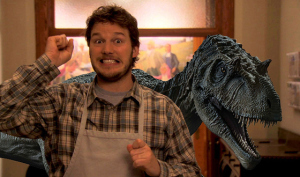 hopefully help shepherd the film in the right direction (although he did also executive produce 3, so that’s not necessarily a plus). Third, it appears that director Colin Trevorrow (Safety Not Guaranteed) has decided to mirror the feel of the original, which will hopefully mean we’ll have a fun ride in store for us when the film opens on June 15.
hopefully help shepherd the film in the right direction (although he did also executive produce 3, so that’s not necessarily a plus). Third, it appears that director Colin Trevorrow (Safety Not Guaranteed) has decided to mirror the feel of the original, which will hopefully mean we’ll have a fun ride in store for us when the film opens on June 15.
So, I hope you all have a fantastic Thanksgiving! And Thimblerig’s Interesting Things will be back again next week.

November 25, 2014
Happy T.Hanksgiving from Thimblerig!
November 23, 2014
Kirk Cameron’s Saving Christmas • Thimblerig’s Review
One of the most challenging things about trying to review Christian-made films while living in China is that most of those films never find a screen in this part of the world. They are too low-budget, too lacking in big names, and too religious. Even Darren Aronofsky and Russell Crowe’s Noah didn’t play here because it was a biblical movie (a fact which would probably amuse the masses of religious people in American who hated the film because it was too un-biblical)!
What typically ends up happening is that I get a review out once the film has been released on DVD, which is sort of like surfing after the wave has passed. I really appreciated that the Believe Me guys broke the business model by doing a simultaneous theatrical release/digital download, which meant my review for that film went out the same weekend the movie was released. It’s to the point that I can comment on the trailer when it’s released, but not the movie, and that stinks!
But my community of Christian artist friends has been growing over the past several months, and I’m thrilled that one of my new friends, graphic artist Matthew Sample, agreed to do me the huge favor of watching the latest faith-based film to be released – Kirk Cameron’s Saving Christmas – and writing a review for me based on Thimblerig’s movie-watching scale (which you can read about here).
So, without further ado, I give you Matthew’s great review. Enjoy!
Thimblerig’s Review of Kirk Cameron’s Saving Christmas
by Guest Thimblerigger Matthew Sample
Part of me wanted to run up to the ticket counter and say with my jolliest, bearded, and wonder-filled face, “I’m here for Saving Christmas.”
The rest of me goes to a church that does not celebrate Christmas.
Now, don’t get me wrong. I like Kirk. (Not the James, but the Cameron. Holler, someone, if you know what that’s referring to and where to find it in the film.) I dislike the secularization of our culture, and I love putting Jesus first. I’ve even grown up celebrating Christmas. But my church brings up some really good points. They will talk about the pagan past of Christmas, the commercialized shadow of the holy-day that it was… and don’t get them started about the Catholic church and the worship of images.
So I came to this film with two missions. First, to write this review for Nate, who—bless his NaNoWriMo heart—is in deep, deep novel-writing land. Second, to see if I can get my head wrapped around all this Christmas stuff.
What Kirk Got Right
When Kirk’s right, he’s right. And he’s got some spectacular goodness going on in this film.
First, he and his creative team have centered this film squarely on Jesus. He filters everything about Christmas through Christ, and we should applaud Christian creatives everywhere when they glorify Christ. I don’t think it was a marketing decision, but something that Kirk sincerely seeks to infuse in everything he does.
Second, because of his desire to glorify God, he does not go about this endeavor solely on his own, but he made this film in Christian community. We creatives should not be mavericks, and filmmaking especially demands that we collaborate extensively with others. Over the past several films, Kirk has made a point to do these films with his family. They are all over the credits. He even made a point to highlight his sister, Bridgette—not Candace who also acts in films, but the sister who didn’t make it. I think that’s cool.
 He also is increasingly forging creative partnerships with a wide variety of Christians in the entertainment industry. In Mercy Rule, his last film that he made with his family, he teamed up with comedian Tim Hawkins. In this film, he’s teamed up with Darren Doane and several others. He has also promoted this film extensively by joining with high profile, family-oriented, Christian entertainers—the Robinson family, the Duggars, etc.—to get the grassroots word out. It looks like they all had a lot of fun doing it.
He also is increasingly forging creative partnerships with a wide variety of Christians in the entertainment industry. In Mercy Rule, his last film that he made with his family, he teamed up with comedian Tim Hawkins. In this film, he’s teamed up with Darren Doane and several others. He has also promoted this film extensively by joining with high profile, family-oriented, Christian entertainers—the Robinson family, the Duggars, etc.—to get the grassroots word out. It looks like they all had a lot of fun doing it.
And he’s teamed up with Liberty University again, passing his creative knowledge to the next generation of filmmakers. We in the Christian filmmaking realm learn so much by books or by making mistakes. Mentorship is needed on every level. I’m so glad he’s maintaining this relationship with Liberty. No man is an island, and no generation is, either.
Third, the cinematographer did a great job. That’s something I can usually count on when I come to a Cameron film, but it bears emphasis. I don’t think there was an (unintentionally) ugly shot in film.
Fourth, I heard genuine laughter in the audience. And the audience was about a third to half full, which is really decent for a film not on opening weekend. Kirk’s audience showed up, and they seemed to sincerely enjoy some of the laughs. Granted, there were only about 10 genuine laugh moments and a few other moments that didn’t work as well… But this film really was about concepts, and the laughs served as oases in the milieu of holiday contemplation.
Fifth, as I think I’ve mentioned before, Kirk made this film about concepts. I like his experiments in narrative documentary; they seem more personal and authentic than his recent foray into fiction. I hope he keeps experimenting in this genre, and that the quality of concepts grows and matures as he continues.
What Kirk Got Wrong
It is the little foxes that destroy the vineyards, and the unexpected details that make or break a film. Every phase of filmmaking seeks to prevent as many of the little surprises from destroying the film. Inevitably, a few foxes remain.
The most prominent problem with the film is the overuse of slow motion. This has become a tendency with Kirk’s films, and I’m not sure if he is trying to capture a certain aesthetic, or if he ran out of material in post production… or if he is just in love with the view through a camera lens. It happens. We aesthetes can feel a certain amount of pleasure witnessing an event in all the gory detail. But it also makes the film seem tedious. The audience knows exactly what will happen, so the thrill of slow motion comes in what happens during that moment. And not much happens during those slow moments.
Honestly the film could have been a 30-45 minute film with a different edit. Not that the editor did a bad job—he did a excellent job balancing everything. It’s the sign of not having enough content. Either the concepts were not big enough to warrant an 80 minute film, or the concepts were not explored enough. I think the creative team could have developed the concepts more fully.
As an example of an undeveloped story element, the film’s antagonistic force needed more antagonism. A better antagonist would have been the actor who plays the conspiracy theorist at the party and Arius in the Saint Nicholas section. A much more dynamic villain, he would be. Christian’s character is described as a scrooge, but other than having him look glum and leave the party for the quiet of his car, the filmmakers don’t show his scroogeness. He just complains. But even his complaints are groundless: Chris hasn’t actually done any research and easily cedes Kirk’s points as Kirk makes them. He is a living straw man, crafted to grouse until he metamorphoses into the awkward and exuberant convert at the end of the film.
As an example of undeveloped content, the regulative principle of worship never comes up. My church is Reformed, which means that they view the Bible and the Church from a perspective of the Protestant Reformers and the Puritans—Christ alone, faith alone, scripture alone…. Whenever well-minded people add their good ideas to our faith, those additions tend to cause problems after people forget about the reasons. This goes for worship, too. I can hear my pastor say, “Should December 25th land on a day of worship, many who claim Christ will stay home from meeting with Christ’s church—which God commanded—to stay home and unwrap presents—which God has not commanded.” That’s an interplay of concepts I would love to have seen in the film.
Overall, the concepts of the film could probably fit on one sheet of paper. It’s a very simply structured film, with a collection of introductions, three main arguments, and then a collection of endings. The many introductions and endings indicate that the main story did not have enough content for the film, or that the creative team had a middle, but couldn’t figure out how best to begin or wrap up the content.
The Golden Groundhog Ceremony
Cue red carpet music. Turn on the spotlight. Brush up on your What’s Wrong With Christian Filmmaking if you need to get a refresher.
Films made by Christians should take risks. 1/2
I’m giving Kirk half a golden groundhog for this. He’s the only Christian I know in his genre, he made a film about an issue inside the church, and he portrayed jolly old St. Nick in a brawling pub fight. Credit where credit is due: he’s got his view of the world and he’s not afraid to say it. Yet he chose a relatively safe topic, one where he will get a lot of support from his base, and he’s starting to settle into a particular style.
Films made by Christians should challenge the audience. 0
Kirk’s audience is primarily Christians, and most of them are in agreement with him. I’ve gone back and forth on this point, and I can’t sincerely give Kirk a groundhog for this one. The film reinforces concepts that the audience is convinced of for the most part. Perhaps this will motivate some to think twice about their lack of joy and glorify Jesus more in December and all year round. I hope so.
Art is art, the pulpit is the pulpit. 0
Unfortunately, this genre will almost always fail on this point. I’d love to see Kirk keep perfecting this as he improves his craft—not removing the truth from his work, but crafting his presentation of that truth to make it more powerful and more poignant.
Films made by Christians should raise important questions. 1/2
How we worship God as a body of believer’s is one of the most important questions we should think about. How we glorify Him with our lives is another. Who Jesus is, what He has done for us, and how we should respond to His wonderful kindness are also excellent questions discussed in the course of the film. However, the core moral predicament of the film seems contrived.
Christian films should tell good stories. 0
The film told several stories. A scrooge’s redemption, the nativity, a vignette of Christmas tree shoppers, a retelling of the St. Nick myth, and the various quirky scenes at a Christmas party. As a filmmaker, I wish I could say that these stories moved me emotionally. Unfortunately, most of the interesting stories were unessential to the actual plot, and the creative team could have told all the stories in more engaging and creative ways.
Conclusions
So did this film change me profoundly? I wish it had. If you read this, Kirk, and I hope you do, here’s what would have made this film more profound to me.
First, I would use less slow motion. You don’t want to get rid of it entirely, because you have a look to maintain and it is kinda cool. But I would only focus on a few key moments when you really want to bring home a concept… and let those moments be the times that we slow down and linger.
Second, let Christian be the main character and the Arius guy be the villain. I like you, Kirk, as sage, but a sage never works very well as the protagonist. A sage is too knowledgeable and doesn’t change enough over the course of a story. In contrast Christian exhibits the most powerful character arch, but I would love to have him come face to face with the real antagonist lurking behind the scenes. Also, concepts have consequences: I would love to see his choices lead to something beyond mere hurt feelings. If the men cause harm because of their beliefs or lack thereof, or rise above the harm that they have caused, we have the makings of a more sympathetic hero and better interplay between the major concepts.
Third, I would include more concepts. I would present more of the real problems that Christians have with Christmas, and find more and better ways to deal with those problems. This would call for more time in the script stage and in preproduction. But the more time spent crafting our content before we roll film the better.
Thanks for listening to me, Kirk, and whoever else reads this. I can’t wait to see your next film. I love the way you strive to lift up Jesus. Keep serving God. I’m rooting for you.
—
 Matthew Sample II is a digital illustrator who likes, makes, and supports Christian film. In his spare time he writes a graphic novel which he will someday share with the eager world. If you want to see some of his artwork, check out his blog or his sketch club. If you want to argue with him about movies or Christmas, feel free to connect with him via Facebook or Twitter.
Matthew Sample II is a digital illustrator who likes, makes, and supports Christian film. In his spare time he writes a graphic novel which he will someday share with the eager world. If you want to see some of his artwork, check out his blog or his sketch club. If you want to argue with him about movies or Christmas, feel free to connect with him via Facebook or Twitter.

November 20, 2014
The Depressingly Low Expectations Of Christian Filmgoers
This morning Darren Doane, the director of Kirk Cameron’s Saving Christmas, posted the following tweet:
The people have spoken #SavingChristmas #RottenTomatoes 90% and counting. pic.twitter.com/MOh15slq3Y
— Darren Doane (@TheDoane) November 21, 2014
What’s happening for Doane and Cameron’s movie at Rotten Tomatoes is similar to what you’ll find if you look at many of the recently released so-called faith-based films: extremely low critic ratings and unreasonably high audience ratings. Let’s look at some of the results of other Christian-made films:
What exactly is going on?
Is there a secular critic bias out there that says if a film is released with a hint of “faith-based”, it will be treated differently than a movie of a different genre?
Even if the movie is brilliant, it will not get a fair shake?
Is there a faith-based audience bias out there that says if a film is released with a hint of “faith-based”, the quality of the movie will be given a free pass as long as it portrays Christians in a good light, talks positively about Jesus, or has Scripture passages used in a semi-appropriate fashion?
Even if the movie is terrible, it will be received positively if it meets the criteria?
Personally, I think there is a bit of both going on. Yes, there are secular critics who will not approach a Christian film without adding the caveat, “…for a Christian film”. But one hopes that a critic will be able to separate that particular bias from what they experience on the screen and write a candid review that explores the positives and the negatives of the film.
And yes, there are plenty of Christians who will gladly support anything as long as what they are seeing on the screen reinforces or promotes what they already believe. Thus you have hundreds of positive reviews on the Left Behind website from ordinary people who make the movie sound like the best film ever made, rather than the enormous cinematic shamble that it was.
But critic bias is by far the less alarming and less surprising issue of the two on the table. I’m much more disturbed by the way so many Christians will line up around the block to embrace any movie that builds up their worldview – regardless of the film’s quality. In fact, I’d go so far as to say that many Christians have become so needy to see their points of view on the screen that they’ve become blind to what makes for a quality film at all. At least that seems to be the case, considering the way we rally behind so many poor filmmaking efforts, treating them like the best thing since the last poor filmmaking effort.
Yep. Our expectations have grown depressingly low.
There has been a two-pronged effect on Christian-made films that I see as a direct result of the low expectations of the target audience.
First, the low expectations force the filmmakers to sacrifice good storytelling on the alter of hitting all the right beats to please the Christian audience. I’ve discussed this point before, in my article What’s Wrong With Christian Filmmaking, so I will move on to the second point.
Second, the low expectations damage our potential to be taken seriously by people outside the church, as they see us vehemently defending films that are so badly produced.
Our films are not taken seriously.
What did George Costanza say about Christian rock on Seinfeld? “I like Christian rock. It’s very positive. It’s not like those real musicians who think they’re so cool and hip.”
If George were still around today, he might also say, “I like Christian films. They’re positive. They’re not like those real films…”
We did it to ourselves with a Christian music industry supported exclusively by the Christian sub-culture, we did it to ourselves with a Christian publishing industry supported exclusively by the Christian sub-culture, and now we’re trying to do it to ourselves again by building a Christian filmmaking industry supported exclusively by the Christian sub-culture.
And it’s a huge mistake.
This “circle the wagons” mentality does little to help with building the kingdom of God, but does much for building up walls between the church and the greater culture.
In his Salon article entitled, Christian right’s vile PR sham: why their bizarre films are backfiring on them, writer Edwin Lyngar says some pretty damning things about what is happening in American culture as a result of this past year’s Christian filmmaking efforts. Lyngar says:
The people who create and consume Christian film are neither mature nor reflective. They are at their core superstitious, afraid and tribal. They self-identify overwhelmingly Republican and shout about “moochers” while vilifying the poor. They violate the teachings and very essence of their own “savior” while deriving almost sexual pleasure from the fictional suffering of atheists, Muslims, Buddhists, Wiccans, Hindus, and even liberal Christians. To top it all off, the stories they tell themselves are borderline psychotic.
Is this what it means to be salt and light to a dying world, that the followers of Christ come off as ‘neither mature nor reflective’? That we’re seen as ‘superstitious, afraid and tribal’? That our stories are viewed as ‘borderine psychotic’? I realize that this is just one man’s opinion, but I don’t think we Christians can afford to dismiss opinions like his, because I don’t believe that his opinion is so uncommon.
And it all comes back to the depressingly low expectations that we have for the art being produced by us, for us, and in our name.
The irony is that Christians would be the first to stand up and say, “High expectations breed high results, and low expectations breed low results!” with regards to most things in life:
Education? Aren’t Christians known for homeschooling our kids because we have high expectations for their education?
Employment? Aren’t Christian employers known for holding employees to higher standards?
Ministry? Aren’t we disappointed when people in positions of ministerial authority don’t live up to our high expectations?
And yet when it comes to filmmaking - as evidenced by the overwhelming support given to many of the not-so-great faith-based films that were released this past year - our expectation for quality Christian art is shockingly low.
And it just doesn’t make sense.
Meanwhile, not only was the director of Kirk Cameron’s Saving Christmas out this morning stumping on the social media platforms for people to speak out at RT, but the man himself, Kirk Cameron, posted this on his Facebook page:
I can appreciate the grass roots campaigning of Cameron and Doane, and I haven’t had the chance to see Saving Christmas yet to speak to the movie one way or the other, but what about this…
What if – instead of just flocking to a film’s Rotten Tomato page and putting up happy reviews to support the filmmakers - we showed that we have the capability to use our higher order thinking skills, and write critically honest reviews that discuss both the good and the bad about the film?
What if - instead of just flocking to the Facebook pages of filmmakers who believe the way we believe and gushing about how much we love their movies, or flaming about how much we disliked the movies, as the case may be – we do the same thing and give them constructive feedback so that they can improve the next time out?
What if Christians do the really heavy lifting and raise the bar on our expectations for films made in our name, helping our filmmakers by expecting them to make great movies that even the secular critics would have a hard time dismissing?
Folks, unless we start to adjust our expectations, unless we break the model set for us by the music and publishing industry, unless we start doing our best to pursue excellence in the films we are allowing to be produced in our name, we might very well find Mr. Lyngar’s heartbreaking prophecy coming true.
The fundamentalist community will continue to shrink until they start telling themselves—and those they hope to win over—more honest and humane stories… Christian film with its cardboard characters and heavy-handed messages will only drive an increasingly diverse and media-savvy populace away. Failing a profound change of heart, the best this community can hope for are films so bad no one will bother to watch them.


November 19, 2014
Thimblerig’s Three Interesting Things of the Day • November 20, 2014
Today is November 20, which means that the end of the month is just ten short days away. If you are doing Nanowrimo, this is the time to pick it up, push yourself, and get yourself over that finish line! Maybe you haven’t done as well as you were hoping this year, and you’ve only written a few thousand words. It doesn’t matter! Kick it to the end! Maybe you’re right on track, but you’re running out of steam. Push yourself! Don’t let your hard word go to waste! In the immortal words of Rob Schneider in Waterboy…
And in case you need a bit more encouragement, let’s see what Jenny has to say about it.
Now on to the three interesting things I found on the internet this past week.
1. The Peanuts Trailer
This one is really, really interesting to me. Like a gazillion other folks out there my age, I amassed stacks of Peanuts books growing up, and read them over and over and over again. As a somewhat shy kid with self-confidence issues, I identified with Charlie Brown and the problems he faced. In fact, I’d go so far as to say that if I could have become a part of any children’s literature at the time, I would have grown a round head and jumped into the panels of Charles Schultz’s world.
When Blue Sky Studios (the guys behind the Ice Age and Rio movies) announced that they were going to be making a new Peanuts animated feature, with CGI, I was initially pretty skeptical. You could wallpaper your house with the bad reviews of bad movies that decent filmmakers have made from fantastic properties that I grew up with: Transformers 1,2,3 & 4, Scooby Doo, Indiana Jones and the Crystal Skull, Smurfs, Smurfs 2, Tim Burton’s Planet of the Apes, Superman Returns, Knight Rider, The A-Team, Charlie’s Angels, Get Smart, The Pink Panther, Robocop…
…the depressing and continually growing list represents a non-stop assault by lazy Hollywood producers on the pop culture treasures of my childhood.
Given, there have been some successful reboots/reimaginings: Battlestar Galactica, The Muppets, Star Trek, Christopher Nolan’s Batman movies, the recent Planet of the Apes movies, James Bond, to name a few. And while they prove that it can be done, they are the exception to the rule.
And now we have Peanuts up next on the horizon. And I have hope that it will be an exception.
The two things that gives me hope about this film are this:
A) The studio
If you go to the Blue Sky Studios website and look at the films they have released, they are almost all good movies. The one exception was the underwhelming Rio 2, which I forgot right after watching it. However, they did well with the Ice Age franchise, and have several other good standalone movies under their belt. Peanuts is in good hands with this studio.
2) The Creative Team
Peanuts has a strong animation-experienced director in Steve Martino (Horton Hears a Who, Ice Age: Continental Drift) and Charles Schultz’s son and grandson are sharing screenwriting credits with newcomer Cornelius Uliano. Also, I was totally stoked to see that Christophe Beck (one of my absolute favorite movie score composers) is doing the soundtrack. Hopefully, this creative team will seek to stay true to the spirit of the original stories, and not try to reimagine Peanuts for a new generation to the point of getting rid of everything that made Peanuts special and timeless in the first place.
That leads me to the message I would communicate to the creative team if I had the opportunity:
PLEASE MAKE PEANUTS THE MOVIE TIMELESS BY KEEPING IT FIRMLY ROOTED IN THE TIME AND SPACE FOR WHICH IT IS KNOWN!
Yes, I’m suggesting that they should keep the film in the 60′s – 70′s era. No cell phones, no internet, no Facebook references, no hip lingo or jokes about celebrities, no setting in modern-looking neighborhoods. Keep the music reminiscent of the jazzy style of Vince Guaraldi, as well as orchestral music – but no pop songs by One Direction or Christina Aguilera or some other teeny bopper music group that would plant the movie firmly in the 2014′s.
Go CGI all you want, and make it fun and funny for the kids! But remember that the setting and the score are characters into themselves, and if they aren’t there, they will be missed as much as Linus or Schroeder.
At least by 40-something guys like me that grew up with Peanuts.
Now, I started all this saying that I was excited to find the release of the new Peanuts trailer, and so, without further ado…
The trailer looks pretty good. We’ll hold out hope for the finished product!
2) Bono and the Terrible, Horrible, No Good, Very Bad Week
First, Bono is on an airplane over Germany that loses a door (and Bono’s luggage) mid-flight. Then, a few days later, Bono is involved in a very serious bike accident in New York City while biking in Central Park.
I don’t mean to sound snarky with another man’s misfortunes, but… I mean, wow. That has to go down in the books as one of the worst weeks ever. I sincerely hope that Mr. Hewson will have a very quick recovery and be able to get back on the road sooner rather than later.
Meanwhile, Jimmy Fallon had to have the best response of a host having a guest not be able to make it, when he and the Roots stepped in for Bono and U2. I have not been the biggest Jimmy Fallon fan before, but this cover might just have made me a believer.
3) 10 Year US/China Visas
 This one is quite selfish, but I was thrilled to hear that the United States and China agreed to extend ten year visas to each other’s citizens. Living in China, one of the most annoying hassles is reapplying each year for the work visa. This past year was especially excruciating, as we had several extra things we had to do to be able to get visas for all of my family.
This one is quite selfish, but I was thrilled to hear that the United States and China agreed to extend ten year visas to each other’s citizens. Living in China, one of the most annoying hassles is reapplying each year for the work visa. This past year was especially excruciating, as we had several extra things we had to do to be able to get visas for all of my family.
But, thanks to President Obama and President Xi Jinping and their diplomatic staffs, I’ll have one more visa for which I’ll need to apply, and then I’ll be done!
Hopefully my airplane won’t lose a door as I fly home this summer…


November 11, 2014
Thimblerig’s Three Interesting Things of the Day • November 12, 2014
First of all, NaNoWriMo continues, and we’re nearing the middle of the month. The middle of the month in NaNoWriMo is typically the time where we separate the men from the boys, the women from the girls, and the dogs from the cats. It’s the time when we find out who is really serious about finishing 50,000 words in thirty days, come hell or high water. I wish I could say it’s the time when one’s writing becomes really spectacular, but unfortunately, it’s when the quality of the writing starts to become sacrificed on the alter of word count.
In honor of the middle of the month, I give you Gandalf the Grey, and his experience with NaNoWriMo.
I do have to say that if I make it to the finish line, I am going to have a very precocious eleven year old girl to thank. I teach 6th grade here in China, and my class is doing the NaNoWriMo Young Writer’s Program. We spent the month of October in intense preparation, and part of that was allowing the students to choose their own writing goals. Most students chose around 15,000 words in the month, but one ambitious student chose 30,000. When NaNoWriMo began, she made it her new goal to beat me, and so while I’m writing close to 2,000 words a day, so is she. Currently, she has about two hundred words more than I do, so I’ve convinced her to up her final goal to the adult level of 50,000, and she has agreed.
This has worked out really well for me, because now I base whether or not I will quit for the day on her word count, rather than if I’ve reached my daily goal, so I’m being pushed forward. 50,000 words, here I come!
Speaking of young people, my own eleven year old daughter took an extremely cute picture of her seventeen month old brother, Noah, who has just discovered how to make duck lips. The picture she took was so cute because Noah is standing much like an adult might, if they were striking a heroic pose. I absolutely love this picture.
And of course, the more I looked at this picture, the more it reminded me of one of the promotional posters that Darren Aronofsky put out for Noah. And since our Noah shares the name, I thought it might improve the poster a bit to get rid of the sour looking Russell Crowe, and give Noah a more upbeat expression.
 Now that would have been a spectacular movie.
Now that would have been a spectacular movie.
And finally, I give you John Oliver, and the Salmon Cannon.
Now, considering that I’ve used several hundred words here that should have been on my NaNoWriMo novel, I’m going to go ahead and close it up.
See you next week, with the next three interesting things I can find!
–
P.S. On principal, I refuse to include Too Many Cooks in my list. I just refuse to do it.



